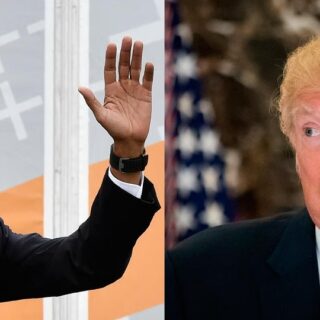
Tokyo in search for paths to entice financial professionals and institutions from troubled Hong Kong in a bid to become Asia`s top financial hub as ongoing protests and Beijing reaction seen as premier advantage to promote Japanese capital.
Japan is considering free-visa regime, tax ease and free offices for asset managers, traders and bankers under campaign to represent Tokyo as the best exodus choice out of crisis-engulfed semiautonomous territory.
Tokyo has been seeking for years the ways to become Hong Kong`s real rival and even to take its place as leading regional financial hub and will go “further than ever before” to lure high-profile financial workers and institutions on its shores, as Reuters informed.
The same sources said Beijing`s national security law which provoked mass indignation in Hong Kong amid concerns it would fundamentally change legal and business framework of the former British territory is now a downwind to Tokyo sails.
“Given the current geopolitical situation in Asia, Japan should take advantage of being a safe business location, which is supported by solid democracy and the rule of law,” said the proposal by the ruling Liberal Democratic Party, while not mentioning specific countries.
Recently Japan`s premier Shinzo Abe said he would “actively promote” bringing in of financial professionals from Hong Kong on the Diet`s session that was warmly welcomed by legislators.
The underlying idea focuses on suggestion that worsening insecurity in Hong Kong would force top financial workers to relocate their operations to Tokyo while larger institutions could expand to Tokyo as part of their diversification and risk strategy against deepening uncertainty.
Promoters of Tokyo have conducted active deliberations with financial institutions in Hong Kong over the last few months, primarily targeting asset funds with around $1bn under their management. The long-term purposes involves persuading large funds to move all trading desks to Tokyo.
A package under discussion includes a short-term visa waiver to allow financial workers to start business activity immediately with subsequent obtaining of all necessary authorizations and licenses. To promt such process the government might lift a requirement for newly entering fund managers to get a permanent office address. They might be permitted to operate out of shared workspaces.
One of the discussed ideas would see the Tokyo Metropolitan Government renting office spaces in order to offer freely them to newly-arrived professionals while they make long-term arrangements.
Moreover, financial workers could take advantage of the national visa scheme for highly-skilled professionals launched in 2012, as former cabinet minister Satsuki Katayama said. The “Highly Skilled Foreign Professional” visa (often referred to as the HSP or HSFP visa) is a special visa offer with more advantages than the standard work visa, designed for talented foreign workers with advanced and specialized skills, though being still one variation of the work visa. This visa scheme is centered on points, which are awarded according to the applicant’s educational and professional background, income and academic achievements.
Nevertheless, tax remain the main issue. The income tax rate in Japan is far higher than in Hong Kong. As one of the sources said the other issue is different employment system.
Promoters of Tokyo as an alternative to Hong Kong admitted it was unlikely the campaign would be endorsed by significant changes in fiscal policy, but reported about active discussions being underway in government with regard to a number of small amendments that could be crucial in reducing the bureaucratic burden enough to make Japan attractive.
Airing of potential stimulus, wherein Financial Services Agency, the Foreign Ministry, the Ministry for Trade and Industry and the Tokyo Metropolitan Government involved, will conclude any time soon with the aim to include them in the annual economic strategy due for unveiling in July.
Tokyo is ranked third by Z/Yen among world`s financial centres published in March, which is up from sixth place in September, while Hong Kong with its political turbulence fell from third to sixth place.





